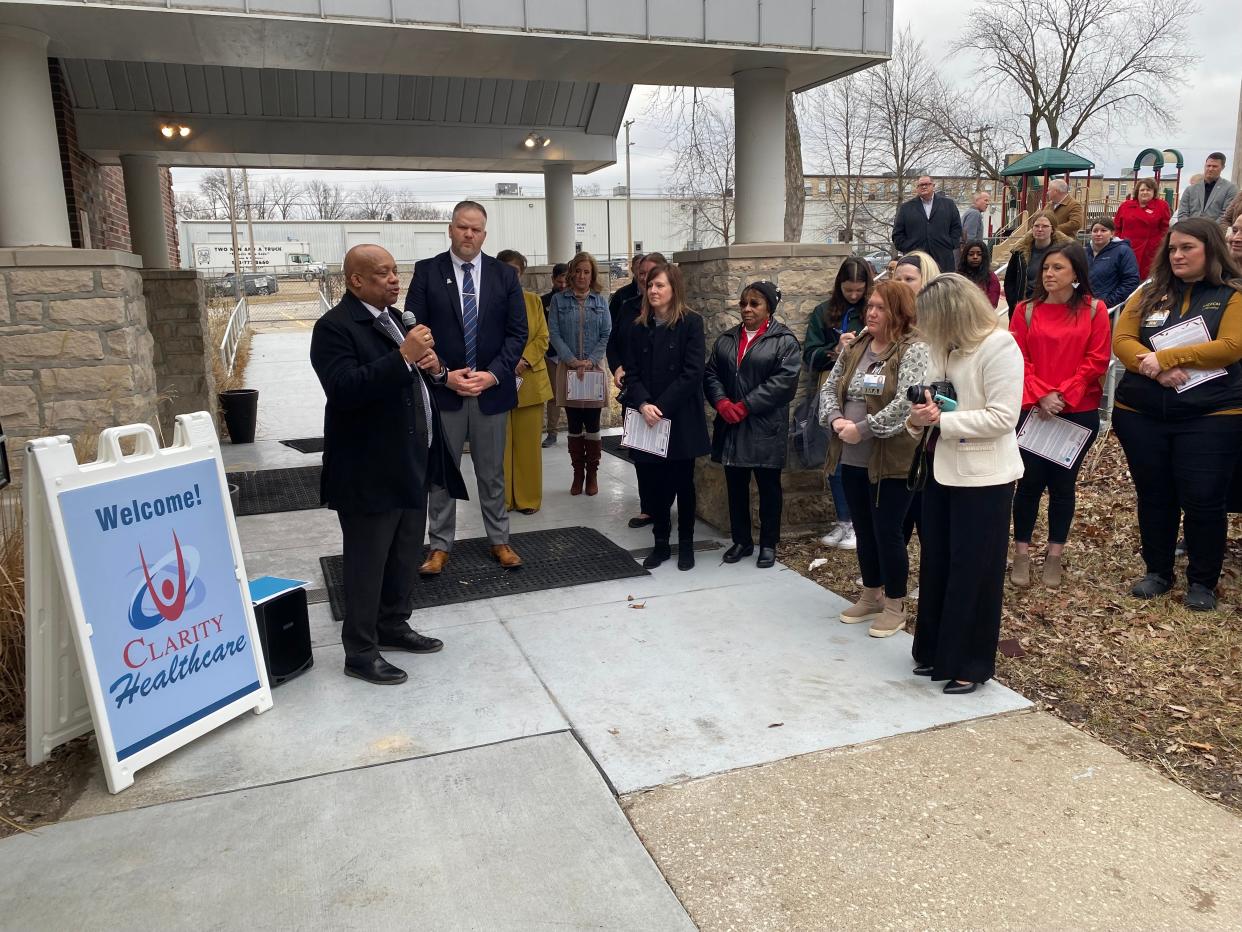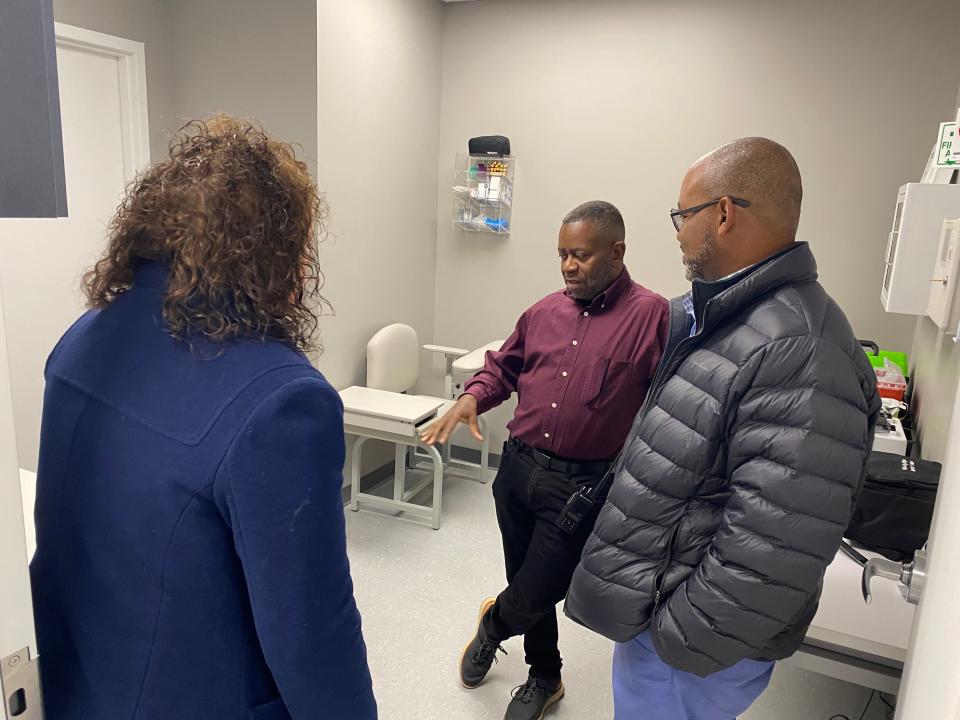This health clinic aims to treat health issues of CPS students and reduce absenteeism

A new health clinic aims to keep students healthy and reduce absenteeism.
Clarity Healthcare Scholar Clinic is a partnership between the organization and Columbia Public Schools, with other involvement from the University of Missouri's Sinclair School of Nursing. It's at the former Eugene Field School, now the Eugene Field Center, 1010 Rangeline St.
"This has been a journey, a journey focused on what is best for our students," said CPS Superintendent Brian Yearwood at Tuesday's dedication.
Related to the secondary objective of reducing absenteeism, Yearwood said students who are in school 90% of the school year achieve double the advancement in reading and triple the advancement in math on state tests compared to those who don't.
"By providing increased access to health care, we provide basic health services and ophthalmology services," Yearwood said.
Students from the University of Missouri Sinclair School of Nursing will receive training at the clinic, under the observation of professionals, said Matt Gass, central region president of Brightli, which is affiliated with both Clarity and Burrell Behavioral Health.
"Preventive health care and engaging in health care early reduces costs in the long term," Gass said of a benefit of the clinic.
Clarity has invested more than $400,000 to build and outfit the clinic.

The clinic's services include primary care, opthalmology, substance use disorder and dental services. It includes two primary care exam rooms. It wll provide free vaccines through the Vaccines for Children program, in-house lab services, sports physicals and others.
Counseling services include behavioral assessments and evaluations, referrals to trauma-focused counseling and referrrals to substance use disorder counseling.
Megan Kruse, pediatric nurse practitioner, is on the staff of the clinic. She's also an instructor in the Sinclair School of Nursing.
"I think it's a great opportunity to connect parents and students to the health care their children require," Kruse said of the clinic. "It's about the family and the patient and it helps both of them."
It also provides hands-on clinical experience for those interested in the nursing field at MU, she said.
Other staff will include a medical assistant and a community health worker.
CPS has a school nurse in almost every building, with Battle, Rock Bridge and Hickman High Schools each having two, said Jennifer Maddox, CPS health services director.
A few schools share a nurse, she said.
School nurses can refer students to the clinic after consulting parents, or parents can call the clinic directly, Maddox said.
"Some of the students need that extra support and resource," Maddox said.
When two students from the same family came to the clinic recently on the same day, one was cleared to go home and the other was sent home with medication and back in school the next day, Maddox said in an example of how the clinic can reduce absenteeism.
"The ability to have primary care when they haven't had primary care before for families is just phenomenal," Maddox said.
School nurses are an important resource for districts to rely on in reducing student absenteeism, said Knoo Lee, researcher in the Sinclair School of Nursing.
His research, "School nurses and chronic absenteeism in schools: a qualitative study on experiences, perspectives and roles" was published in Journal of School Nursing.
School nurses are well-situated to identify students likely to become chronically absent, Lee said his research found.
When a student schedules a visit to the school health center the same time each week, a school nurse can recognize the reason may be because the student doesn't want to be in the class that happens at that time, Lee said.
A student who was exhausted when he came to class needed time to sleep in the nurse's office, Lee said.
Those are just a few of the ways a school nurse can help prevent absenteeism, he said.
The student clinic is something for policymakers to consider, but he said there may be a disconnect between the student and the school nurse in that situation, because the student isn't volunteering but is referred there and must be transported there.
It's not something his current research looked at, Lee said.
Roger McKinney is the Tribune's education reporter. You can reach him at rmckinney@columbiatribune.com or 573-815-1719. He's on X at @rmckinney9.
This article originally appeared on Columbia Daily Tribune: CPS student health care services available at newly opened clinic

